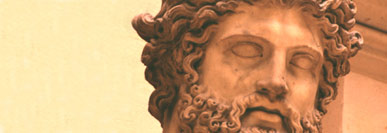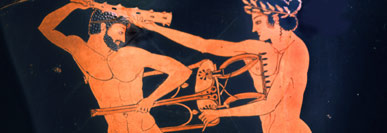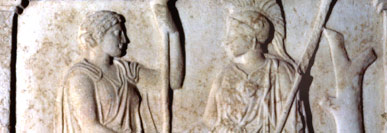 Mighty
Zeus was the king of all Greek gods and dispenser of divine justice. Ruler
of the skies (his brothers Poseidon and Hades ruled the sea and the
underworld respectively) he carried a thunderbolt to signify his power and
association with weather. Zeus lived on cloud-topped Mount Olympus from
where he watched – and often meddled in – the affairs of men below. Bearded,
strong and vigorous, Zeus fathered many children, both through his wife, the
goddess Hera, and through his affairs with mortal women.
Mighty
Zeus was the king of all Greek gods and dispenser of divine justice. Ruler
of the skies (his brothers Poseidon and Hades ruled the sea and the
underworld respectively) he carried a thunderbolt to signify his power and
association with weather. Zeus lived on cloud-topped Mount Olympus from
where he watched – and often meddled in – the affairs of men below. Bearded,
strong and vigorous, Zeus fathered many children, both through his wife, the
goddess Hera, and through his affairs with mortal women.

